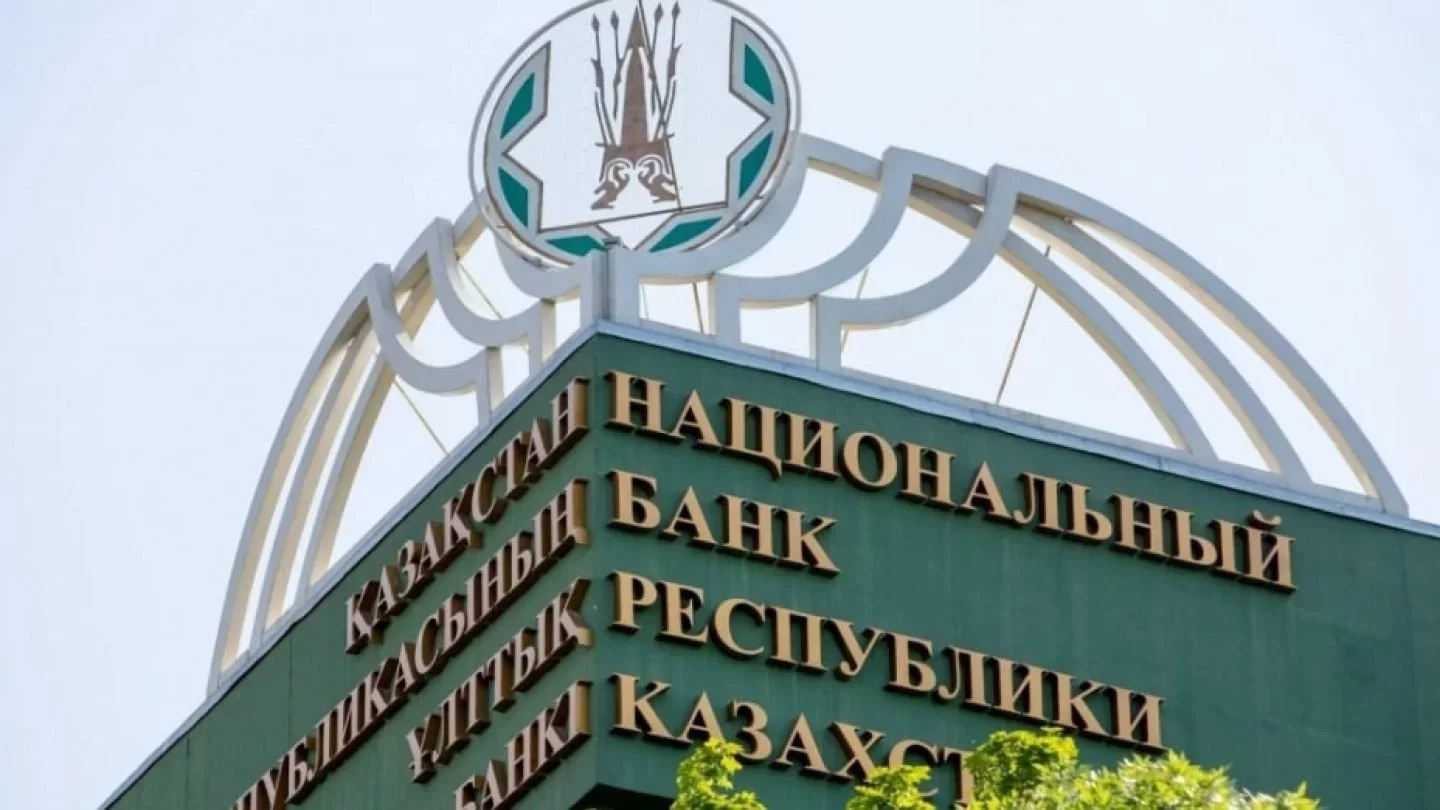Failure of Financial Policy: Experts Discussed Inflation Risks

Amid news of slowing inflation in Kazakhstan, economists are discussing the reasons for the decline and making predictions on prices. Experts shared their opinion on how the current inflation process will affect the lives of Kazakhstanis with Orda.kz.
Zarina Skripchenko, leading analyst at the Association of Financiers of Kazakhstan, told Orda.kz that at the moment, inflationary pressure in Kazakhstan continues to slow down: monthly inflation has been in the range of 0.5-0.7% since May, whereas the annual consumer price index from its peak value at 21.3% in February has dropped to 11.8%.
Magbat Spanov, expert at the Institute of Innovative Economics, professor at Al Farabi Kazakh National University recalled that in accordance with the plan of the National Bank, adopted in 2012, inflation in Kazakhstan was supposed to be 3-4% , but at the end of 2022 it exceeded 21% .
Apparently, the recent change in the leadership of the National Bank is primarily associated with uncontrolled inflation and the lack of a clear monetary policy in the country. The new head of the department at his previous place of work was, in general, responsible for the macroeconomic and financial policy of the country. However, it can be described in one word - Failure, he emphasized.
What's Stopping Prices From Falling?
Skripchenko notes that the slowdown occurs against the backdrop of a high “base” of last year, or more precisely: the retention of high interest rates in the system, as well as systemic measures implemented by the government to slow down inflation. Meanwhile, a further decline in price growth in the country may be limited by internal and external pro-inflationary risks.
These risks are created by the price environment of global commodity markets. Among internal factors, we can highlight such factors as high budget expenditures, stimulating the growth of imports, the recent weakening of the national currency, leading in the future to an increase in import prices, as well as stable domestic demand - an increase in the volume of retail trade for 8 months of 2023 by 7.3% compared to the same period last year.
At the same time, the external inflationary background, according to the expert, is worsening due to rising oil prices following a reduction in its production by exporting countries (OPEC), high inflation in the EU and the USA, as well as rising prices in Russia , which is one of Kazakhstan's main trading partners.
Against this background, according to the October AFK survey, expectations for the consumer price index (CPI) for the year ahead remain double-digit and amount to 11.3%. In other words, in the next 12 months, a significant slowdown in inflation processes is not expected, and inflation returning to the target corridor 5% is seen by financial market experts as unlikely.
Double-digit inflation, as a rule, has a negative impact on the purchasing power of the national currency, leads to the depreciation of savings and especially hits the incomes of Kazakhstanis with low-income. While the National Bank is pursuing a tight monetary policy aimed at restraining aggregate demand, the government needs to accelerate measures to saturate the domestic market with goods and services.
 photo: Pixabay.com
photo: Pixabay.comWhat Affects Inflation in Kazakhstan
Spanov says that the problem of inflation is always relevant, as it directly affects any family's expenditures. And in most cases, it leads to lower incomes and increased poverty.
According to the expert, inflation is always affected by many factors, both external and internal. In Kazakhstan, over the past three years, most of the inflation was brought in from outside because of the global recession. That is, a decline in production or slowdown in economic growth. This, in turn, was influenced by the following factors:
- Pandemic and post-pandemic periods (borders were closed)
- The beginning of the Russian-Ukrainian conflict (transport corridors were changed and sanctions were introduced)
- Populist programs that led to an increase in expenditures without expanding internal sources of financing, only at the expense of the NSF
Spanov also suggests that growth is possible in the future due to the conflict in the Middle East (rising oil prices and changes in maritime logistics).
In Kazakhstan, global inflation was supplemented and spurred by ill-conceived populist decisions of the leadership and measures to support socially vulnerable segments of the population. In addition, a significant contribution was made by lobbying groups (construction, financial sector, etc.), where huge funds were directed for subsidies or from the pension fund.
Speaking about the decline in inflation in the country since the beginning of the year, the economist notes the participation of both financial regulators and the government of the Republic of Kazakhstan. He also named the reasons that contributed to the decline.
Firstly, global inflation began to decline. Secondly, the limited resources of Kazakhstan's budget. Thirdly, at the end of summer, the decrease in inflation was due to a significant reduction in prices for seasonal products and goods, so at the beginning of September it reached 13%.
Next year, according to him, the following factors will influence inflation in Kazakhstan:
- The adoption of new programs and the choice of a new model, which will require additional resources for its implementation
- The presence of a real program to combat inflation by the government and the National Bank as part of macroeconomic actions
- Lack of professional and responsible leaders at the head of the government and the National Bank
- Budget imbalance, when expenditures are covered from funds from the National Fund
- A sharp increase in the number of the poverty headcount since 2020, for whom subsidies and benefits have sharply increased
- The adoption of populist programs that require additional funding (either from the NSF or the printing press, to maintain political stability)
- The need to sharply increase defense spending to ensure the country's security.
According to Spanov, deterioration in real production and monetary policy can be expected in the future. This will ultimately lead to great financial instability and increased poverty and unemployment in the country.
Original Author: Yuri Nizhegorodsky
DISCLAIMER: This is a translated piece. The text has been modified, the content is the same. Please refer to the original piece in Russian for accuracy.
Latest news
- Aqtobe Region: Life Sentence Issued in Double Homicide and Hostage Case
- Karakalpak Court Upholds Sentence Against Activist Extradited from Kazakhstan
- Former Qazseleqorgau Officials Sentenced in Corruption Case
- Deputy Commander-in-Chief of the Russian Navy Reportedly Dies in Kursk Region
- Toqayev Sets Priorities for New Transport Minister
- Armenian Parliament Advances Bill to Nationalize Electric Networks of Armenia
- Appeal Withdrawn in Alina Serikova Case, Sentences Remain Unchanged
- Toqayev and Nazarbayev Congratulate Lukashenko on Belarus Independence Day
- Armenia: Foreign Ministry Spokesperson Reaffirms Commitment to South Caucasus Connectivity Initiative, Recalls 'Crossroads of Peace'
- SK-Pharmacy Undergoes Management Shakeup Amid Scrutiny
- Supporting Farmers and Boosting the Economy: Bektenov Reports to Toqayev on Government Progress
- Final Ruling: Court Dissolves Perizat Kairat’s Charity Foundation
- From Station Cashier to KTZ Chair: Who Now Runs Kazakhstan’s Rail Sector
- Kazakhstan to Restrict Loans for Conscripts
- Details Emerge in Corruption Case Involving Former Vice Ministers and Credit Bureau Head
- Former Armenian President Serzh Sargsyan Faces Corruption Charges
- Tensions Persist as Azerbaijan Presses Russia on AZAL Investigation
- "Off Course": Exclusive Photographic Evidence and Analysis of Drones That Crashed in Kazakhstan
- Kazakhstan Temir Joly in Debt — But Posts a Profit. How Did That Happen?
- North Kazakhstan to Use 45 Billion Tenge from Returned Assets for Water Projects

